by Blaine Taylor
At 3 am, on August 23, 1914, a solitary figure stood on a darkened railway platform at Hanover, Germany, awaiting a special train’s arrival from Berlin. As the 67-year-old German Army general waited, two Russian armies of the Czar were laying waste to the East Prussian provinces of the Imperial German Reich of Kaiser Wilhelm II, and this obscure officer—Paul von Hindenburg—had been sent to command the forces it was hoped would drive them out.
Now, after a 53-year service record that had seen combat against Austrians in 1866 and French in 1870, Hindenburg was about to enter the most glorious military chapter of his long career.
When the train arrived, out alighted a tall, martial figure (though not as imposing as Hindenburg himself) who stiffly saluted and reported: “Major General Ludendorff, your Excellency, by order of August 21st, of the All-Highest’s Military Cabinet, appointed Chief of Staff of the 8th Army.”
Hindenburg returned the salute and the two men boarded for the journey east. Together they examined maps and agreed on a plan. Thus was born one of the most famous military partnerships in German history.
Early Honors as a Soldier of Prussia
The future German Field Marshal and President of the Weimar Republic was born in 1847, and during the course of his 87 years saw the death of both empire and republic, as well as the birth of the Third Reich of the Nazis. He served under three successive Kaisers and was fated to supplant them as the symbolic father figure during the course of WWI, only to surrender their country to the rule of a former corporal in their Imperial Army—Adolf Hitler, the last of his six Chancellors. Hindenburg lost the greatest war in history and then helped pave the way for an even greater global conflict that destroyed all that he and his Imperial masters had held dear.
Born the son of a soldier in a line going back to 1289 and the Teutonic Knights, his full name was Paul Ludwig Hans Anton Beneckendorf und Hindenburg. After a healthy boyhood life outdoors working the family farms, Hindenburg joined the Prussian Army as a cadet in 1859 at age 11. His grandfather had won an early Iron Cross in 1813 for action against the French of Napoleon I, and the future Field Marshal was destined over a century later to even greater medals and awards.
As a lad he was a prankster, but he had a serious side, too. He was very religious and deeply devoted both to his own parents and family as well as, in later life, to his wife and only son.
In 1866 he fought against the Austrians at the Battle of Sadowa at age 19. In an assault on a gun battery, “a bullet went clean through the eagle on my helmet, grazed my head without causing any serious damage, and passed out behind.” Until the end of his life, he kept that shattered pickelhaube helmet on his desk as a reminder. Hindenburg discovered that he loved the thrill of combat, and after his wounding refused a hospital visit to return to the fighting.
At the conclusion of the campaign, the King awarded him the first of many high decorations: the Prussian Order of the Red Eagle. Four years later, during the Franco-Prussian War of 1870, he was awarded the Iron Cross for bravery at the Battle of Sedan.
“Don’t Forget Me”
Over the next 40 years, Hindenburg rose steadily from captain to lieutenant general in a fairly typical military career for the times. He married in 1879. In 1904 he commanded a corps.
During Imperial Maneuvers in 1908, forces led by him bested those led by the Kaiser, and some said that this resulted in his being asked to retire in 1911 at the age of 64. Hindenburg said he never believed it.
In any event, thus it was that Hindenburg was on the sidelines in the summer of 1914 when war came to Europe. In the west, Germany launched the controversial “Schlieffen Plan,” the invasion of France and Belgium. The plan called for a great right-wheeling movement through neutral Belgium to strike at the French. The basic idea was to concentrate the total German armed strength in the west and beat the French before having to turn east against the slow-to-mobilize Russians. But the Czar attacked before the Germans had thought he would.
The German holding forces in East Prussia, the 8th Army of 14 divisions, was commanded by General von Prittwitz, an indecisive leader. Opposed to him were two full-sized Russian armies led by generals Samsanov and Rennenkampf. The German public demanded relief in the east. Von Prittwitz hesitated while his senior staff officers, Colonel Max Hoffmann and two senior corps commanders—General August von Mackensen and General Hermann von Francois—were aching to close with the enemy. The Chief of the German General Staff, Helmuth von Moltke, fired von Prittwitz and looked for new leadership.
The first man to enter the minds of both the Kaiser and von Moltke was not Hindenburg, but a brigadier general and commoner named Erich Ludendorff. Eighteen years younger than Hindenburg, he was praised for his hard work and great staff abilities but was not well liked and was known as a difficult man with whom to get along. In fact, he was despised by the Kaiser for his aloofness and arrogance. But nearly all recognized his brilliance.
In the first days of the war he was posted to the west, and legend has it that he demanded the surrender of the Belgian City of Liege by banging on the town gates with the pommel of his sword—and got it.
He was thus picked to be Chief of Staff in the east, but for the post of Commander-in-Chief of the leaderless 8th Army, the High Command wanted a more stable, trustworthy man, a person of noble blood and position with whom the Kaiser felt more at ease socially. A few days before the momentous appointment one of Moltke’s staff officers received the following letter from a retired general: “Don’t forget me if, as things develop, a commanding officer is needed anywhere! Both in body and mind I am robust.”
And so it was that Hindenburg was selected by the Kaiser to be the figurehead as Ludendorff ran the daily affairs of the East Prussian forces. If he was to be a figurehead, however, he was to be a responsible one for, although Ludendorff might be the source of either victory or defeat, Hindenburg alone would bear the praise or blame of their joint enterprise before the Kaiser, the army and the public at large.
“The Twin Brethren”
By his very appearance Hindenburg suggested calm and stability, and his classic imperturbability inspired confidence to all in moments of trial and crisis. Moreover he was good-natured and kindly to his subordinates, and completely devoted to duty and service to the Fatherland.
Comparisons between Hindenburg and Ludendorff are unavoidable. As one author noted, “In many ways, they were antithetical, yet complementary. Hindenburg was modest and retiring, Ludendorff arrogant and egotistical … Hindenburg, in his account of the years of their partnership, uses the pronoun ‘we’ throughout, while Ludendorff’s memoirs are characterized by the constantly recurring use of ‘I.’ Hindenburg was a man of slow but accurate judgment, and he never lost his nerve, while Ludendorff—although certainly the more brilliant and with a swifter grasp of the situation—in the final analysis was prone to moments of panic.” Indeed the Kaiser and von Moltke had perfectly matched these two titans of 20th-century European warfare.
“The Twin Brethren,” as they later came to be called, arrived at Marienburg on August 23, only to find to their astonishment that Hoffmann had already issued the necessary orders of their brilliant plan on his own! In their respective memoirs, Hindenburg and Ludendorff barely mention this fact.
Victory at Tannenberg
In any case, on August 24, the situation was as follows: Samsanov was driving swiftly through East Prussia, toward Marienburg. Rennenkampf had been attacked and temporarily halted by von Francois. The plan was to surround Samsanov’s army before Rennenkampf—known to be Samsanov’s rival—could come to his rescue. That having been accomplished, the 8th Army would then turn on Rennenkampf. But for the present, the center of the German Front was left weakened as a bait to tempt Samsanov to attack.
Samsanov fell for the ruse and the fighting began. That evening, Ludendorff, predictably, lost his nerve and wanted to break off the fighting. But the stolid Hindenburg refused, and herein lies his chief claim before history to having “won” the Battle of Tannenberg. So it was that each of them in his own way—Hindenburg, Ludendorff and Hoffmann—could lay claim to a share in this glorious victory for German arms.
The battle raged all through the 27th, 28th and 29th of August. Mackensen and von Francois linked up their respective wings on the evening of the 29th, completing the pincer movement, and proceeded to slaughter Samsanov’s army.
This was followed by the Battle of the Masurian Lakes, from September 5 to 15, in which a second great victory—this time over the unresponsive Rennenkampf—was extracted.
The Kaiser was overjoyed, and Wilhelm II gave Hindenburg the Pour le Merite, while Ludendorff and Hoffmann each received the Iron Cross from their grateful monarch. If Wilhelm and von Moltke were elated, the populace of Germany went wild with unrestrained joy. It seemed 1870 all over again, only more so.
“Our Hindenburg”
Thus it came to pass that all the credit for the victory came to be allied in the public mind with the name of an obscure general named Hindenburg.
“He was taken to the warm heart of his people and became affectionately known as ‘Unser Hindenburg’—‘Our Hindenburg.’” Some wit called him “the wooden titan,” and soon there were huge wooden statues and busts of him everywhere into which the people paid money to drive iron nails, as a fund-raising drive to support the war effort. His impassive portrait graced every home in the Reich.
What was the astonishing secret of his amazing rise? Why was he—and not Ludendorff or even Hoffmann—lauded for the laurels of Tannenberg? The answers lay deep in the German psyche.
His monumental stature, his great head, up-turned moustache and quiet manners all endeared him to the average German. Moreover, Hindenburg had no flaws of “genius,” as had the likes of Goethe and Bismarck. He was, rather, a simple uncomplicated man, and the people loved him for it.
That November, Wilhelm made Hindenburg the first of only three Field Marshals to be created in Germany during the whole of WWI. Henceforward, Hindenburg signed himself as “Hindenburg, GFMI,” for Generalfeldmarschall. The Hindenburg legend was now firmly established and would not lose its luster until nearly the very end of his long life.
His fame was used by the Kaiser to cover up the disastrous situation faced that fall. “Majesty, the war is lost,” Moltke had said to Wilhelm II after the loss in France at the Battle of the Marne. Although great victories were continually won in the east, the decisive theater of war—as foreseen by von Schlieffen—was in the west. After the initial German failure to destroy the French and the British Expeditionary Force in 1914, the war of movement ceased, and the “war of attrition” took over.
In the east, Warsaw was captured by Hindenburg. In August 1916, the Kaiser gave way to popular demand, appointed Hindenburg as Chief of the German General Staff—the highest post after that of the Emperor himself in the Imperial Army—with trusty Ludendorff as his First Quartermaster General.
Now, Hindenburg was indeed on the scene in total command at last, the virtual dictator, with Ludendorff, of Germany’s war effort, but already it was too late for Germany to win the war by a purely military victory in the field. A negotiated peace was still possible but the proud Twin Brethren would have none of it.
A Lost War, a “Last Fling”
There then developed an uneasy relationship between the erratic Kaiser and his two generals. Wilhelm may have felt overshadowed by Hindenburg. But the Field Marshal handled the Kaiser with considerable tact, always being very respectful of him, and in the main preserving the outward façade of Wilhelm’s being “Supreme War Lord,” while in actuality that was Hindenburg’s job.
Ludendorff’s attitude toward Wilhelm II, however, was completely different. Himself a man of genius, he looked upon the Kaiser as a fool. As soon as the two took over at Great General Headquarters, a great many things changed. The General Staff, with Hindenburg at its head and Ludendorff as its guiding will, branched out into all phases of German national life. It became a “silent” as opposed to an outright military takeover of the civilian state, with the Kaiser in nominal control overall.
During its 26-month reign at the national helm, the Hindenburg-Ludendorff partnership was responsible for three main actions: the introduction of unrestricted submarine warfare on the high seas by the dreaded German U-boats; the fall of Reich Chancellor Theodor von Bethmann-Hollweg; and the loss of the war as a result of the failure of the gigantic German offensive on the Western Front in March 1918.
The stepped-up U-boat war brought the powerful United States of America into the conflict at the precise moment when German armies freed from the Eastern Front (on account of Russia withdrawing from the war) were heading west; it was, in retrospect, a blunder of the first magnitude. The fall of Bethmann was entirely engineered by the two, in hopes of a more vigorous prosecution of the war effort at home, while the 1918 attack was their last throw of the dice to break once and for all the deadlock imposed by trench warfare. To overthrow Bethmann they had traveled to Berlin to confront the Kaiser with their joint demand—threatening to resign if the monarch did not comply. Shocked, the Kaiser agreed because they were too valuable to lose, but was privately furious at the affront to Prussian history. Still, subsequent chancellors were nonentities, and the real issues were in actuality decided by the two generals.
Later in life Hindenburg was heard to say, “I realized that the war was lost in February 1918, but I decided to let Ludendorff have his last fling anyhow.” How casually he referred to the great offensive that March! Although it almost smashed through the Allied lines and reached Paris, it was later stopped in its tracks by the fresh American troop reserves from across the Atlantic, brought there by the sinking of such passenger liners as the Lusitania.
On July 18, 1918, the Allies themselves launched a counteroffensive that smashed instead through the German lines and came right up to the vaunted “Hindenburg Line,” the last defense of the Fatherland on foreign soil. On the 8th of August—a day called by Ludendorff “the black day” of the German Army—the First Quartermaster General, too, recognized that the war was irretrievably lost.
Two days later, Hindenburg told the Kaiser of this, and peace-feelers were immediately extended to the west. Back came the answer: The Kaiser must go, declared U.S. President Woodrow Wilson. Stung at last into action to personally protect his throne, the Kaiser angrily demanded that the two generals appear before him in Imperial audience at Schloss (Castle) Bellevue on October 26 to demand Ludendorff’s resignation, which was immediately tendered. Hindenburg, however, was to remain.
Suppressing the Communist Revolt
On October 29, the night the Kaiser left Berlin for his General Headquarters at Spa, Belgium, his beloved Imperial Navy—created by him personally three decades before—mutinied at the great naval station at Kiel. By November 5, 1918, Kiel, Hamburg, Lubeck and Bremen were all in the hands of Communist “Soldier’s and Worker’s Councils,” a thing unheard of in the German Reich.
By the 7th, virtually all German cities were in their hands, and the Reichstag issued the Imperial Chancellor, Prince Max, an ultimatum: Unless the Kaiser himself abdicated the throne peaceably by noon the next day, they “would walk out of the government and organize the revolutionaries.”
Kaiser Wilhem called a Crown Council at Spa and was adamant about remaining on the throne, but events were overtaking him. Hindenburg wept but could not back the Kaiser’s rigidity. Choosing between the possibility of the Kaiser being carried off by a mob or abdicating and escaping to Holland, Hindenburg proclaimed for the latter, and the Kaiser was finished.
Now all that he had stood for and sworn his oath to was gone. But the Field Marshal decided to remain at the head of the Army to “save” Germany, and thus placed both himself and his troops at the disposal of the new President of the German Republic. In that capacity, Hindenburg supervised the ruthless suppression of the Red revolts across the Reich and later organized the demobilization of the major part of the now-Republican Army.
The Ever-Popular Hindenburg
How was it, one asks, that the man who had lost the Great War for Germany and was largely responsible for the overthrow of its ruling regime was allowed to remain as a prominent figure in postwar affairs? An extraordinary event occurred, as the German people seemed to silently proclaim, “The Kaiser ran away, Ludendorff lost the war, but ‘unser Hindenburg’ must remain to guide us and lead us!”
In these postwar years Hindenburg remained immensely popular. He wrote his memoirs. He offered himself in place of the Kaiser to a tribunal examining war crimes. He accepted blame for the war’s direction after August 1916.
Monarchist though he was, he was taunted by other monarchists who blamed him for the Kaiser’s flight and maneuvered by them to run for President of the Weimar Republic in 1925. He narrowly defeated the Socialist ticket and took office, perhaps harboring the notion he would one day bring back the Kaiser. Indeed, as Germany lurched through the crises of the 1920s and early ’30s, the best hope for salvation from the growing power of the Nazis may have been the restoration of the Hohenzollern monarchy. But Hindenburg would not agree to a scheme of a regency for one of the Kaiser’s grandsons.
Hindenburg Versus Hitler
And then the final crisis of Hindenburg’s life came, in the form of a conflict between the wills of two ex-soldiers—one a field marshal, the other a lance corporal. In 1932, when Hindenburg reluctantly agreed to run for a second term of office as President, Hitler announced he was going to run against the former Field Marshal. In the ensuing campaign, “The Old Gentleman” neither made speeches nor traveled, whereas Hitler barnstormed the country.
The venerable Field Marshal defeated Hitler 53 percent to 37 percent. It was a victory, but it seemed that eventually the Nazi Party would come to power. What determined Hitler’s appointment by Hindenburg—the very man who’d beaten him!—in the long run was the Führer’s false assertion that if and when he came to power, the Nazis would, indeed, restore Kaiser Wilhelm II to the throne.
Against his better judgment, but at the demand of his advisers, Hindenburg reluctantly appointed Adolf Hitler to Chancellor of the German Reich in January 1933. Shocked at this rise of his former co-conspirator from the Beer Hall Putsch days, Ludendorff sent a prophetic telegram to his former chief and comrade-in-arms: “This man will one day ruin the entire country! Coming generations will curse your name for having made him Chancellor.” The President never saw or heard from crusty Erich Ludendorff again. Both Hindenburg and Ludendorff despised Hitler who, nonetheless, eventually attended the funerals of both.
In a March 21, 1933 ceremony President Hindenburg gave official blessing to the new Hitler government and Hitler in turn praised the old leader. Hindenburg then took less interest in governing, giving reign to Hitler.
Surrendering the State: The Nazi Enabling Act
The fabled Hindenburg legend was beginning to fade. The mass of Germans had counted on him to save Germany from Nazism and now felt betrayed by him. That March, by his signature of the Nazi Enabling Act following the burning of the Reichstag the previous months, Hindenburg gave Hitler virtually full dictatorial powers.
On August 2, 1934, in his 87th year, Hindenburg died at Neudeck, where his body lay in state, guarded on his deathbed by two steel-helmeted German Army officers with sabers drawn in salute.
On the very day of Hindenburg’s passing, however, another and more significant ceremony took place as the entire German armed forces swore a personal oath of allegiance, not to the Weimar Republic, the German Army or even to the state, but to one man alone, Adolf Hitler.
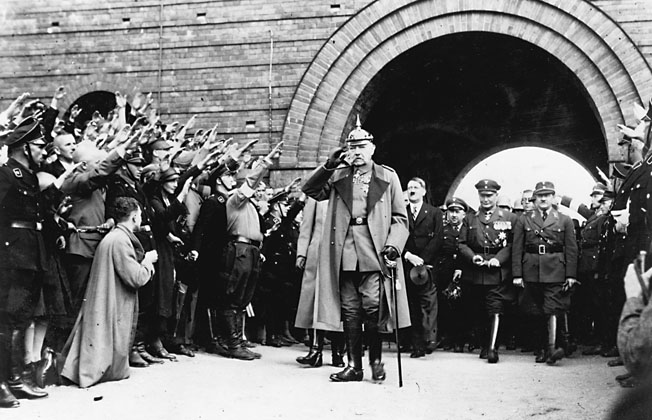
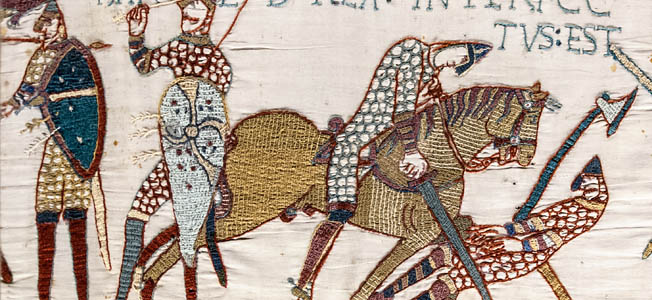
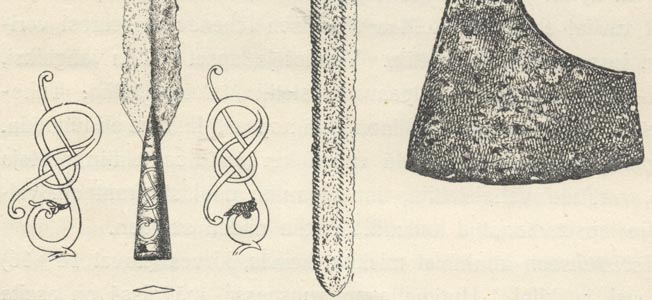
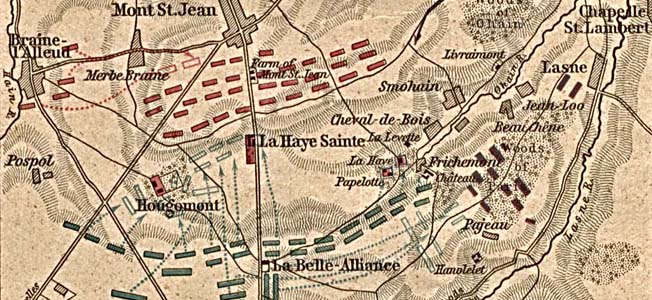


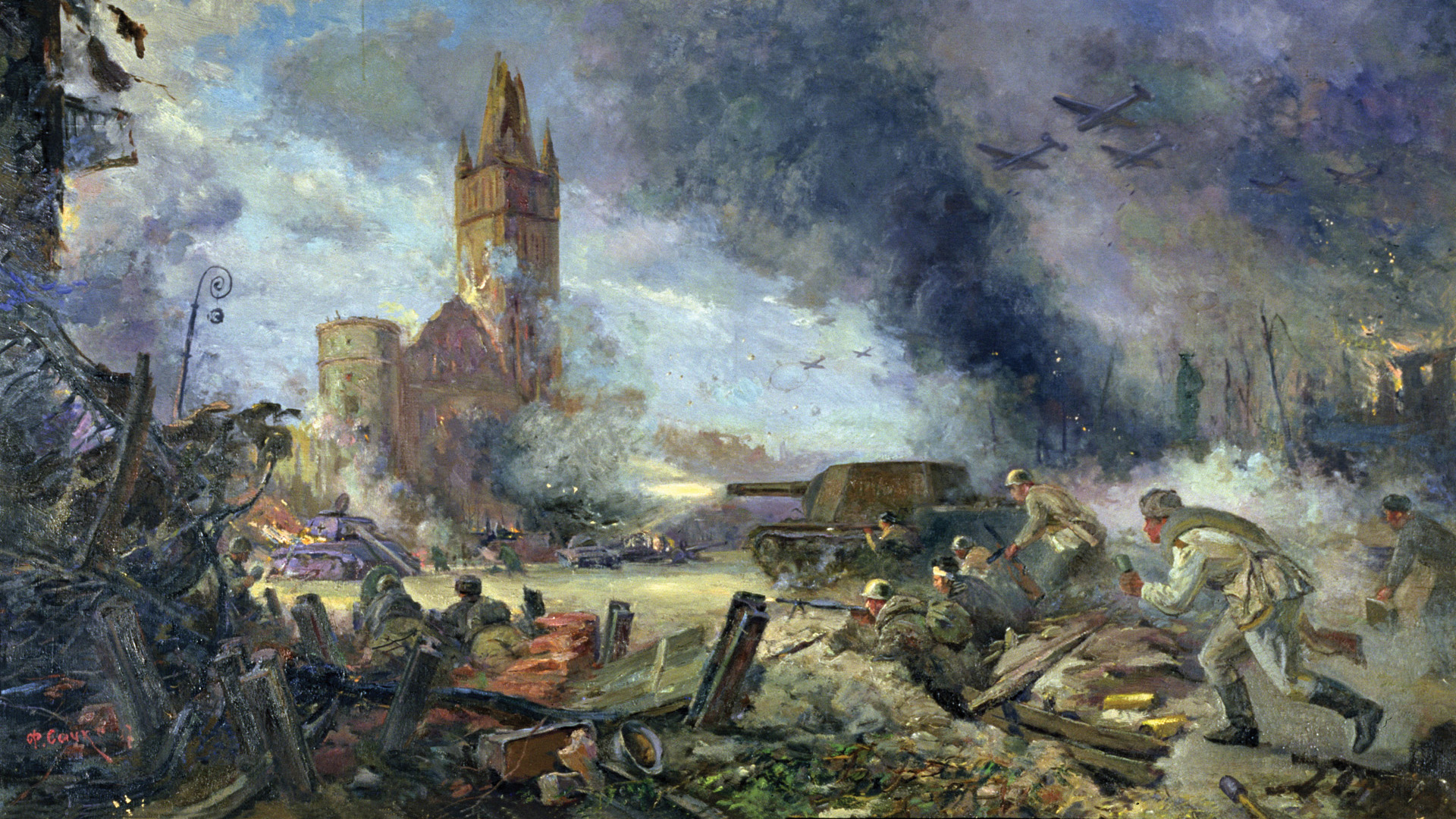
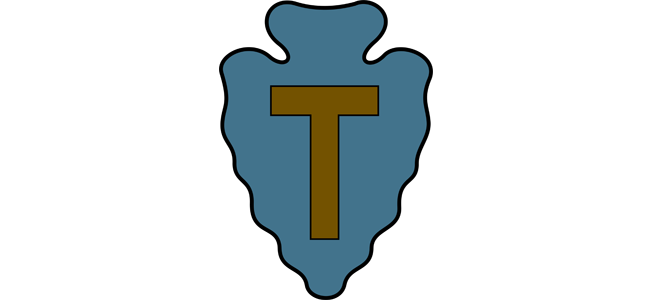
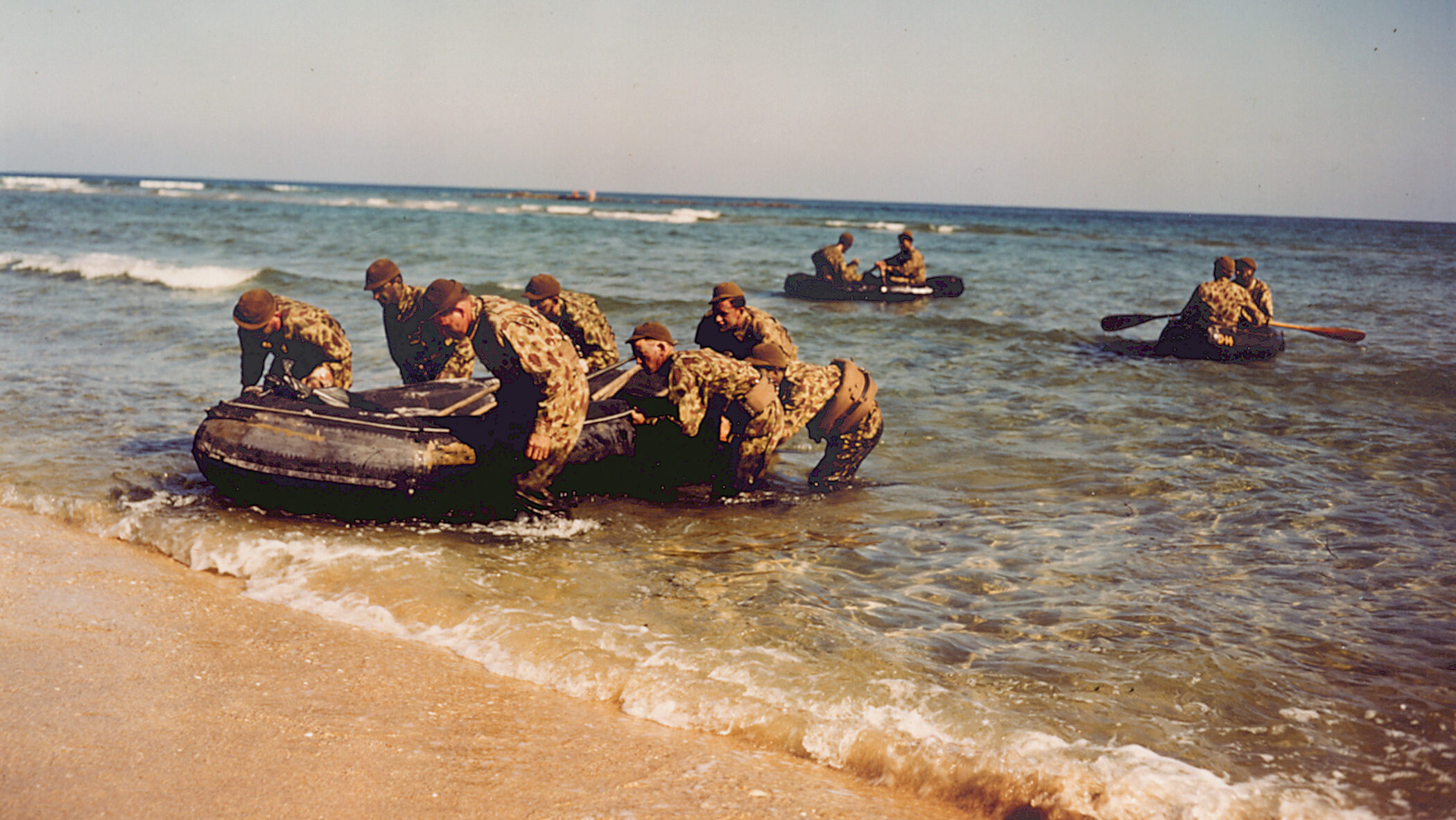
Join The Conversation
Comments
View All Comments